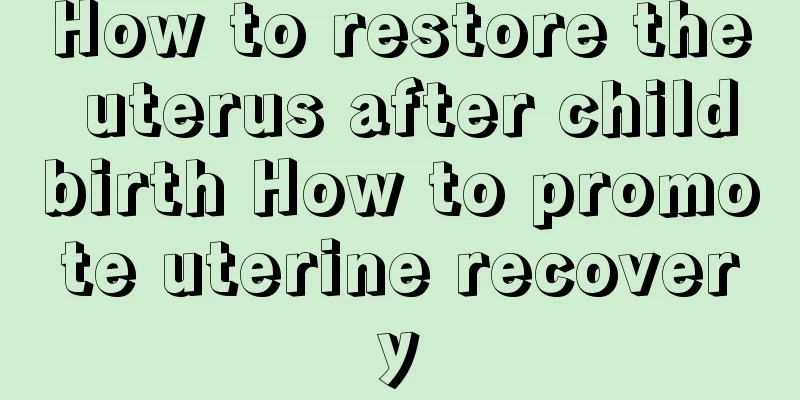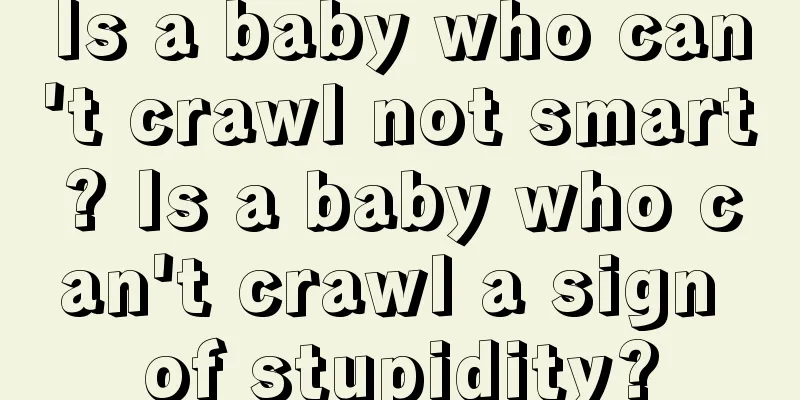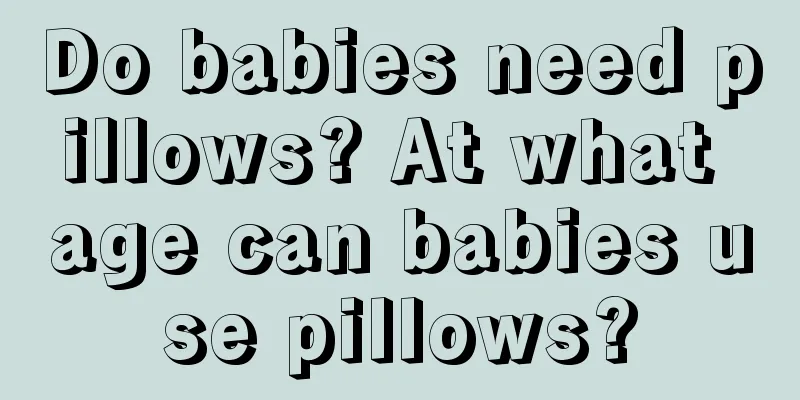What should parents do if water gets into their baby's ears while bathing? Don't worry

|
Many new parents accidentally get water into their baby's ears when bathing or washing their baby's hair. At this time, parents should not be too anxious. Just use a cotton swab to absorb the water and then blow it gently with a hair dryer. What to do if water gets into baby's ears during bathing1. Use a medical cotton swab. Make one end of the cotton swab fluffy and put it into the ear with water. Slowly roll it to suck out the water. Repeat several times until the cotton swab is dry. Then use a hair dryer (weak wind) to gently blow on the ear for one minute. 2. Cover the baby's ears with both hands, cover them for a while, then quickly release your hands. Repeat this several times to see if you can use the impact of heat to pop out the water in the baby's ears. The harm of water entering the baby's ears when bathing1. Induce otitis media What are the dangers of water getting into the baby's ears while taking a bath? Water getting into the baby's ears while taking a bath will increase the baby's chance of suffering from otitis media. Since the baby is still young, the ear structure is not yet fully developed. Therefore, if water gets into the baby's ears during a bath and is not handled in time, it can easily induce symptoms of otitis media. In severe cases, it may even endanger the baby's hearing ability. 2. Cause discomfort to the baby If water gets into the baby's ears while taking a bath, it will cause the baby to feel uncomfortable. Because water has entered the ears, the baby will naturally feel very uncomfortable. Therefore, when the baby has water in the ears while taking a bath, it is easy for the baby to have adverse reactions such as crying incessantly and refusing to drink milk. Therefore, if water gets into the baby's ears while taking a bath, it is recommended to deal with it in time to avoid affecting the baby's health. Pay attention to bathing your baby When washing your baby's hair and bathing him, you can press the baby's earlobes with your hands and keep them close to the face, so that water will not easily flow into the ears. Alternatively, you can also put a bath cap on your baby when washing his hair and bathing him, which is very good and will prevent water from flowing into his eyes and ears. Baby Bath Tips1. During bathing, move gently and quickly, pay attention to the temperature, and don't let your child catch a cold. 2. Be very careful not to let water/baby soap foam enter the baby's mouth, nose, ears, and eyes. 3. When bathing a young baby, be sure not to use force to clean the sebum scabs on the fontanelle area on the top of the head. 4. Always pay attention to your child’s emotions and don’t let him or her develop a fear of taking a bath. |
Recommend
Should pregnant women with diabetes give birth early? Should pregnant women with diabetes be hospitalized?
Diabetes is a very common disease nowadays. Many ...
Can I wean my baby in summer? Why is it not a good idea to wean my baby in summer?
Weaning is something that every baby of the right...
Will pregnant women gain weight due to edema? How long will it take for pregnant women to recover from edema?
Many mothers will experience edema in the late st...
Is a wooden comb good for hair? Will a wooden comb get moldy?
Wooden combs are a type of comb that many girls l...
Will gestational diabetes get better after giving birth? Will gestational diabetes return to normal after giving birth?
Many pregnant women will suffer from diabetes dur...
Why is Shuke toothpaste expensive? Which Shuke toothpaste is the best?
The actual user experience of Shuke toothpaste is...
Should you squeeze the nipple of a newborn baby?
The whole family is very happy when the baby is b...
When should a child be weaned? What are the good ways to wean?
Dear mothers, do you know the correct time for we...
What are the risks of induced labor for pregnant women?
During pregnancy, there may be an emergency situa...
What should men eat during pregnancy to improve sperm quality?
Preparing for pregnancy is not just a woman's...
What is the lack of children who wet the bed? What should children who wet the bed supplement?
What is the lack of children wetting the bed? The...
How long can breast milk be stored? It depends on the storage conditions.
How long breast milk can be stored depends on the...
Can babies drink green tea? What are the side effects?
Green tea is very helpful for our health. It can ...
Should baby food be added with oil? What kind of oil should be added to baby food?
As babies grow older, mothers need to start addin...
How to educate a disobedient child? Should a disobedient child be spanked?
Educating children is a very complicated and long...









